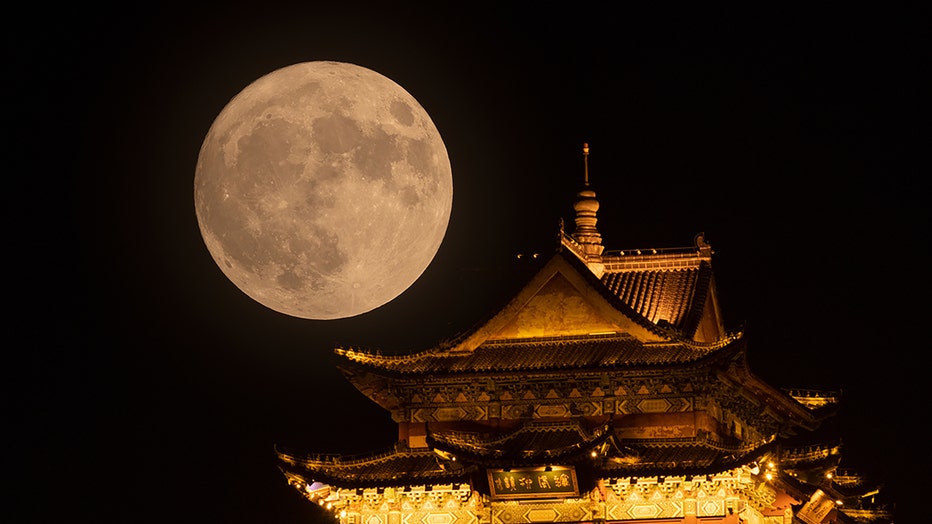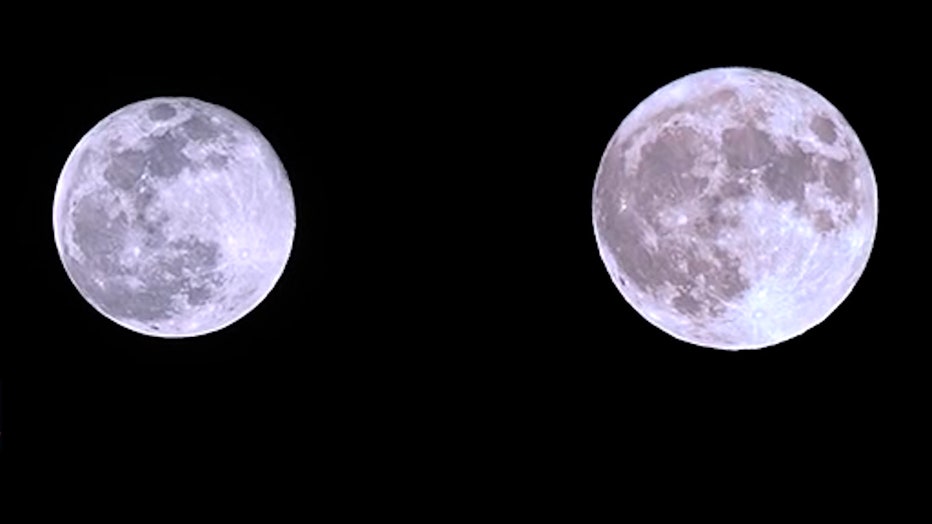How much bigger is a supermoon, really?
Micromoon vs. Supermoon: Stunning video compares the two
Filmed from the mountains of Colorado, a videographer shows the difference between micromoon and supermoon events.
Impressive video from the mountains of Colorado shows the difference in sizes when the moon appears at its largest – and smallest – from Earth.
Barry Stevenson captured the supermoon in August 2023, then went back to the same location in late February for the micromoon, he told Storyful.
The side-by-side comparison shows the visible difference in size and brightness between the two.
RELATED: 'Martians wanted': NASA seeking applicants to live in year-long Mars simulator
What is a supermoon?
A supermoon happens when the moon’s orbit is closest to Earth, also known as perigee, at the same time the moon is full, according to NASA.

(EDITORS NOTE: Image taken with double exposure) A super moon rises over a tower on August 1, 2023 in Jiujiang, Jiangxi Province of China. (Photo by VCG/VCG via Getty Images)
When the full moon aligns with perigee, it’s a bit brighter and bigger than a typical full moon, hence the term supermoon.
RELATED: How to watch the total solar eclipse with NASA
About a fourth of full moons are supermoons. NASA says there are typically about three to four of them a year.
What is a micromoon?
When the moon’s orbit is farthest from Earth, called apogee, at the same time the moon is full, it’s called a micromoon. When this happens, the moon appears a bit smaller and dimmer than normal because it’s so far away.

Side-by-side of micromoon and supermoon (Barry Stevenson via Storyful)
February’s full moon was known as the snow moon, but it was also a micromoon. It’s the only one of 2024.
When is the next supermoon?
There are four supermoons to look forward to in 2024, according to EarthSky.org, and they’ll happen four months in a row:
- Aug. 19
- Sep. 17
- Oct. 17
- Nov. 15
From Worm moon to Strawberry moon: These are the names of each full moon
Each full moon of the year has its own nickname. (Credit: FOX Weather)
Other full moons in 2024 include:
- March 25: worm moon
- April 23: pink moon
- May 23: flower moon
- June 21: strawberry moon
- July 21: buck moon
- Aug. 19: sturgeon moon (supermoon)
- Sept. 17: harvest moon (supermoon)
- Oct. 17: hunter’s moon (supermoon)
- Nov. 15: beaver moon (supermoon)
- Dec. 15: cold moon

